New Scientist covers the latest developments in science and technology that will impact your world. New Scientist employs and commissions the best writers in their fields from all over the world. Our editorial team provide cutting-edge news, award-winning features and reports, written in concise and clear language that puts discoveries and advances in the context of everyday life today and in the future.
Elsewhere on New Scientist
Autistic enough • We have missed autism in girls for decades – and the time for change is now
New Scientist
Brought in from the cold
Global twist to China’s cleaner air • Efforts to improve air quality in China may have inadvertently increased the rate of warming by removing the masking effect of aerosol pollution, finds Madeleine Cuff
Fossil leg deepens mystery of our tiny cousin Paranthropus
Black holes could solve space puzzle • Strange little red dots in the early universe have mystified researchers, but two studies may now have found an answer, finds Jonathan O’Callaghan
Monkeys use crafty techniques to get junk food from tourists
The surprising origin of the anus in animals
On the edge of the quantum realm • What lies beyond quantum mechanics? We now have mathematical tools to help us look
Auroras seen on Neptune for the first time
Does aspirin have potential as an anti-cancer drug? • Research into whether aspirin could help prevent certain types of cancer is ongoing, with mixed results, finds Fiona MacRae
Big spots may help giraffes keep warm
Quantum computers are on track to solve knotty problems
Microalgae could offset emissions • Increased photosynthesis could counteract carbon released from peatland as world warms
Wood made seethrough using rice and egg whites
An early hint of cosmic dawn has been seen in a distant galaxy
Extraordinary wasp may have used its rear end to trap flies
Pregnancy’s lasting effects • Bodily changes that occur during pregnancy can take months or possibly even years to be reverted, finds Carissa Wong
Fake pills ease PMS even if you know they are placebos
Even moderate CO₂ emissions could lead to 7°C of warming
Smartphones show benefits for kids • Phone use may boost well-being and social connections in children – if they avoid social media
Strange clicking shows sharks aren’t silent after all
A wing and a prayer • Would you want an AI flying your holiday jet? A cost-cutting plan may give you no choice. But it’s a risk too far, argues Paul Marks
Guest columnist • Feeling your (brain) age Many of us have a brain that is older than our years. But there are plenty of things you can do to counteract this, says neuroscience columnist Helen Thomson
Fashion blues
Breaking new ground • Why are we driven to explore so widely and to challenge ourselves? A fascinating, bracing book unpicks the complex story, says Elle Hunt
At what cost? • Drug trials are vital to medicine, but what of those taking part? A new book gives them a voice, finds Alexandra Thompson
New Scientist recommends
The film column • Copy that Life is hard on icy Niflheim, and the colonists need expendables: humans who take the flak, die and get cloned. In Mickey 17, our hero is left for dead, only to return and find he has been “reprinted”. What then, asks Simon Ings
Your letters
Autism’s missing girls • For decades, science has overlooked autistic girls and women. Now we are finally waking up to the biases in autism research – and what we have discovered changes everything, says neuroscientist Gina Rippon
Autism prevalence among 8-year-olds in the US
Culture shock • The discovery that animal culture is far more...

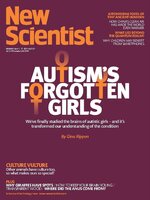 Apr 05 2025
Apr 05 2025
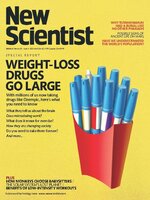 Mar 29 2025
Mar 29 2025
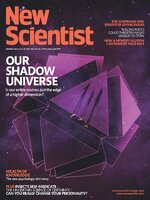 Mar 22 2025
Mar 22 2025
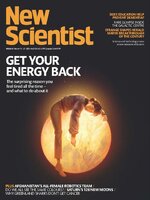 Mar 15 2025
Mar 15 2025
 Mar 08 2025
Mar 08 2025
 Mar 01 2025
Mar 01 2025
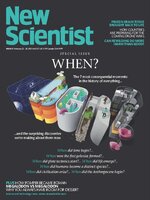 Feb 22 2025
Feb 22 2025
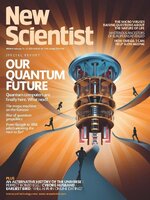 Feb 15 2025
Feb 15 2025
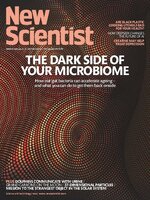 Feb 08 2025
Feb 08 2025
 Feb 01 2025
Feb 01 2025
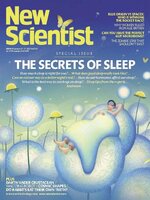 Jan 25 2025
Jan 25 2025
 Jan 18 2025
Jan 18 2025
 Jan 11 2025
Jan 11 2025
 Jan 04 2025
Jan 04 2025
 Dec 28 2024
Dec 28 2024
 Dec 14 2024
Dec 14 2024
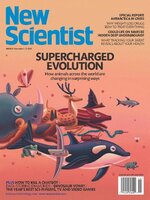 Dec 07 2024
Dec 07 2024
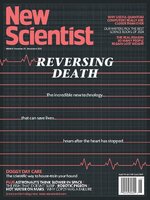 Nov 30 2024
Nov 30 2024
 Nov 23 2024
Nov 23 2024
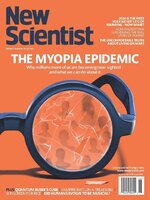 Nov 16 2024
Nov 16 2024
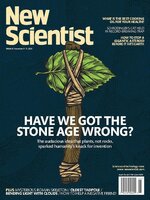 Nov 09 2024
Nov 09 2024
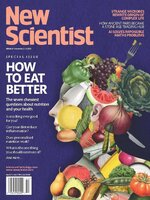 Nov 02 2024
Nov 02 2024
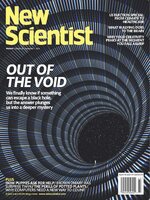 Oct 26 2024
Oct 26 2024
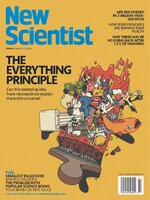 Oct 19 2024
Oct 19 2024